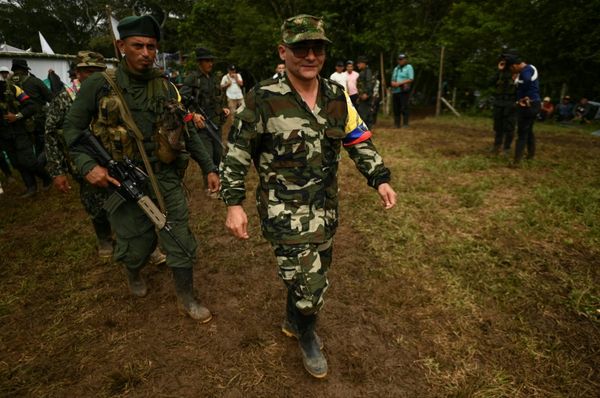
“Formidable female novelists, ghastly literary men, a faith-shaken poet, eunuchs, pirates, horny wolves, international terrorists” are among the subjects covered by books on this year’s Baillie Gifford shortlist, according to its judging chair, Robbie Millen.
Literature is a theme of this year’s list, which features the collected diaries of the Australian writer Helen Garner alongside books about the Scottish novelist Muriel Spark and the poet Tennyson.
The shortlist for the UK’s most prestigious nonfiction prize also includes books on the history of Islamic slavery and the emergence of radical extremism in the west. “The six books on this year’s shortlist have real breadth in terms of subject matter and style,” said Millen, who is literary editor of the Times and the Sunday Times.
The Guardian’s international security correspondent, Jason Burke, is shortlisted for The Revolutionists: The Story of the Extremists Who Hijacked the 1970s. The book “makes a counterintuitive argument”, said the judges, “tracing the decline of the left that led to the rise of Islamism”, and is “tremendously well-written”.
Garner was shortlisted for How to End a Story, described by the Guardian’s reviewer Rachel Cooke as “the greatest, richest journals by a writer since Virginia Woolf’s”.
Richard Holmes, who was previously shortlisted in 1999 and 2009, this time makes the cut for The Boundless Deep: Young Tennyson, Science and the Crisis of Belief.
Frances Wilson, previously longlisted in 2016 and 2021, was chosen for Electric Spark: The Enigma of Muriel Spark, described as a “canny biography” by Olivia Laing in her Guardian review.
Asked about the literary bent to this year’s shortlist at a press conference on Wednesday, Millen said that there was “probably less straight history being published than perhaps a few years ago”.
Completing this year’s shortlist is Captives and Companions: A History of Slavery and the Slave Trade in the Islamic World by Justin Marozzi, and Lone Wolf: Walking the Faultlines of Europe by Adam Weymouth.
Asked about the lack of racial diversity on the shortlist – all six authors are white – Millen said that “the diversity [the judges] were most interested in was diversity of topic and style, and it just happened that that’s the way the cards fell”.
The winner of the prize will be announced on 4 November. While the winner will take home £50,000, the other shortlisted authors will receive £5,000 each.
The Baillie Gifford prize is sponsored by the investment management company Baillie Gifford. In recent years, the firm has faced criticism for its investments in businesses connected to fossil fuels and Israel. Protests last year led to the company’s sponsorships of nine UK literary festivals coming to an end.
Last year’s winner, Richard Flanagan – who won the prize for his book Question 7 – said he would not accept the prize money until Baillie Gifford shared a plan to reduce its investment in fossil fuel extraction and increase investments in renewables.
In Wednesday’s conference, the prize director, Toby Mundy, said that Flanagan had had a “candid” conversation with the fund manager, but the ultimate result was that Flanagan did not accept the money. It will instead be donated to a literacy charity.
The company’s commitment to sponsor the prize expires this year, so the prize is “deep into conversations” with Baillie Gifford about future sponsorship. There were “very positive indications” that the company would continue to sponsor the award, said Mundy.
Twelve books had been longlisted for this year’s prize. The longlist also featured Daughters of the Bamboo Grove by Barbara Demick; The Finest Hotel in Kabul by Lyse Doucet; The Last Days of Budapest by Adam LeBor; John & Paul by Ian Leslie; Things in Nature Merely Grow by Yiyun Li; and Between the Waves by Tom McTague.
Joining Millen on this year’s judging panel are the historian and author Pratinav Anil; the journalist and broadcaster Inaya Folarin Iman; the cultural historian, biographer and novelist, and previous winner of the prize, Lucy Hughes-Hallett; the deputy culture editor of the Economist, Rachel Lloyd; and the author and biographer Peter Parker.
Judges made their selections from 350 books published between 1 November 2024 and 31 October 2025.
Recent winners of the prize include John Vaillant, Katherine Rundell, Patrick Radden Keefe and Craig Brown.
To explore all shortlisted titles, visit guardianbookshop.com. Delivery charges may apply.







